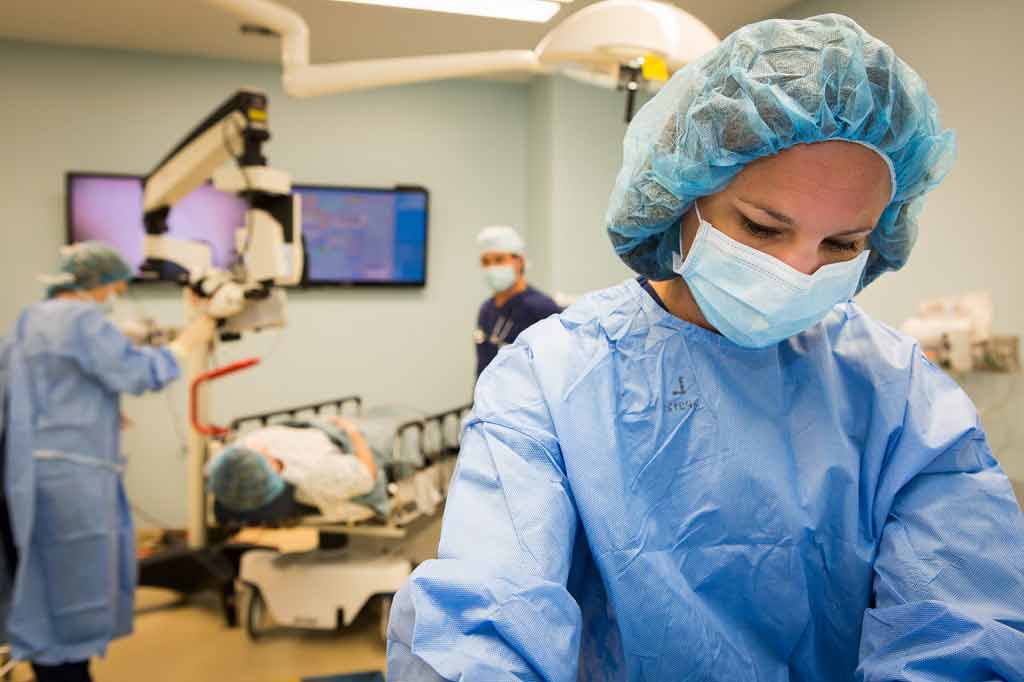Behind the Headlines Top Five of Top Fives 2014
Medical practice
As we move towards the end of the 2014, like all news sources, we fall back on that classic space filler – the list story. So without further ado, here is the official Behind the Headlines Top Five of Top Fives stories of 2014...
As we move towards the end of the year, like all news sources, we fall back on that classic space filler – the list story. So without further ado, here is the official Behind the Headlines Top Five of Top Fives stories of 2014, in which we celebrate the good, highlight the bad, check out the weird and answer some of the burning questions of the year.
The top five 'Good work boffins!' stories of the year
We can often get bogged down in pointing out dodgy sub-group analyses, spurious extrapolations of sample sizes containing just 20 rats and a water maze, and RCTs pointing out the benefits of cherries on dementia prevention that turned out to be funded by Big Cherry. So it's important not to lose sight of the fact that there are many hardworking researchers, producing invaluable, often lifesaving, work, framed in the best traditions of evidence-based medicine, which can make the world a better place.
Here’s our top five of the year:
New weapon found in the war against superbugs
The growing threat of antibiotic resistance is one of the biggest threats to public health. If it continues to develop we could end up living in a world similar to the pre-antibiotic era. What we now consider to be mild infections could spiral out of control and routine surgery would be fraught with danger.
That is why the news in June of the discovery of a new technique to fight bacteria was welcomed. UK researchers have invented a technique to pierce the outer membranes of bacteria, which kills it. The advantage of this approach is that by targeting the membranes, rather than the bacteria themselves, there is less chance of resistance evolving.
Although it is early days, this method could eventually lead to the development of new drugs against multi-drug-resistant bacteria.
'Bionic' pancreas could be used to treat diabetes
The cause of type 1 diabetes is simple. The pancreas doesn’t produce a vital hormone called insulin. The current treatment for type 1 diabetes is far from simple; it involves day-to-day insulin injections and blood sugar monitoring.
Hopefully this may change in the future as researchers in June carried out a small, though successful, trial of what the media described as a “bionic pancreas”.
This is an automated pump/monitoring device, worn on the outside of the body, that continuously measures sugar levels and automatically makes fine adjustments to insulin delivery in response. In effect, it acts like an artificial pancreas.
Studies involving a greater number of people and taking place over a longer duration should be on the way.
Dual vaccine approach could help eradicate polio
Wiping out a disease can be a challenge but it is possible, as we can see with smallpox.
It has longed been hoped that the same could be done with polio; a viral infection that can cause paralysis and death.
Polio vaccination programmes have almost wiped out the disease, though there remain stubborn pockets of resistance in Afghanistan, India and Nigeria. The infection persists in these countries for a number of reasons, including limited access to healthcare and political instability.
Researchers working for the World Health Organization, carrying out field work, found that adding a booster dose to the vaccine schedule increase immunity.
While this may seem a modest accomplishment, just a small increase in overall immunity in a population could successfully eradicated polio once and for all.
Aggressive breast cancer protein discovered
Up to a third of breast cancers are HER2-positive cancers. These are cases of breast cancer where growth is driven by a protein called human epidermal growth factor receptor 2 (HER2). These types of cancer can be particularly aggressive and difficult to treat.
In July researchers identified a protein, integrin ?v?6, that seems to be stimulating the rapid growth of cancerous cells. The good news is that they also identified an antibody called 264RAD that can block the action of the aggressive protein.
The hope is that these discoveries will lead to a new generation of breast cancer drugs.
Removing copper from body could slow cancer
In April an international team of researchers discovered an innovative new technique that could be used to treat certain cancers.
They discovered that copper helped activate a series of biological "pathways" that stimulated the growth of cancerous cells.
So they repurposed existing drugs used to treat a genetic condition called Wilson’s disease, in which copper builds up inside the body.
These drugs did prove successful in reducing copper levels and slowing the growth of tumours in mice, as well as in human cells in a laboratory setting.
It is hoped that similar success will be achieved in human trials.
The top five 'Don’t wait up for that call from Stockholm' stories
All medical research is valuable. It's just that some of it is less valuable than others. And to be honest, we cannot see any of the researchers involved in the following studies picking up the Nobel Prize for Medicine anytime soon.
Watching porn associated with male brain shrinkage
A German study found an association between the amount of time men reported watching pornography per week and the size of their brains.
The higher the number of hours of porn watched, the smaller the volume of grey matter.
Though this raises the problem of what we call in the trade a chicken and egg problem. Does watching porn make your brain smaller or do men with smaller brains like watching porn?
To be honest we can think of better ways to use expensive MRI scanners.
'Peeing' in pool may create harmful byproducts
A Chinese study confirmed what most of us always suspected. People who can’t be bothered to get out of a swimming pool to pee are the lowest of the low.
Not only is peeing in a pool deeply disgusting, the study found that compounds found in urine react with chlorinated water, creating a potentially hazardous toxic byproduct called N-DBPs.
While it’s always nice to have your prejudices confirmed, we think there are bigger threats to public health than pool polluters.
Vampire treatment with blood may slow ageing
In a somewhat sinister experiment, American researchers injected blood taken from younger mice into older mice. They found that the injections rejuvenated some communication between nerve cells in the older mice.
While there may be a potential application in humans, we struggle to see a study design involving vampire treatments that would get past an ethics committee.
Headbanging could damage your (Motör)head
A case report in The Lancet was definitely from the “no s%#t, Sherlock” school of research. It turns out that repeatedly headbanging to heavy metal music is not ideal for the brain.
Still, the report did provide one of our favourite quotes of the year as The Lancet defined headbanging as: “A contemporary dance form consisting of abrupt flexion-extension movements of the head to the rhythm of rock music, most commonly seen in the heavy metal genre.”
Do short people also have smaller IQs?
No. And the study in question is entirely without merit (average size of the Behind the Headlines team: 5ft 8 inches or 1.72m in new money)
The top five 'Call that reporting?' stories
We look at a lot of health journalism. Some of it excellent, some of it good, some of it downright terrible. Here are our top five examples of the latter:
Claims of a universal cure for cancer 'misleading'
The Daily Express hit the ground running in January with the headline: “A cure for all cancers is on the way". The claim, entirely spurious of course, was actually based on laboratory research involving cells taken from blind mole rats.
While the rats do have some intriguing biological properties, claims of a universal cancer cure being imminent was just nonsense.
Life after death 'is real'
“Life after death is a real phenomenon, British scientists find,” Metro reported. So was it true? Had one of the most significant philosophical and theological questions in human history finally been conclusive answered? No, of course not, stop being so silly.
The researchers actually found that a minority of people reported having out-of-body experiences during cardiopulmonary resuscitation (CPR). It is perfectly plausible that people would continue to have thoughts and experiences while there is still oxygenated blood flowing to the brain.
Earl Grey 'as good as statins'
“A cup of Earl Grey 'as good as statins' at fighting heart disease,” reported The Daily Telegraph on April 1st. We had to double check that it wasn’t an April Fools, but it turned out that this normally sensible newspaper was being serious.
As we are heartily sick of pointing out (all together now) the study involved rats not humans.
And encouraging readers to replaced prescribed statins, used to prevent heart disease, with Earl Grey is profoundly irresponsible.
Ibuprofen can 'prolong lifespan'
The Daily Mirror reported, “taking ibuprofen every day could extend your life by up to 12 YEARS”. This was just one of many unproven and irresponsible headlines on research involving yeast, microscopic worms and fruit flies (still, at least it wasn’t rats).
Aside from the lack of evidence, headlines encouraging people to take medication without first seeking medical advice are potentially dangerous. While safe for most people, ibuprofen is not suitable for everyone, such as people with heart failure.
One in three cat bite victims 'end up in hospital'
“One in three people who are bitten [by cats] have to be hospitalised,” the Daily Mail warned us. But before you put your pussy in a Hannibal Lecter style head restraint, the paper was guilty of failing to understand simple health statistics. They confused the number of people who turned up at A&E with a cat bite, with the total number of people bitten by a cat (a much bigger number).
The actual figure of people who require hospitalisation after a cat bite is thought to be less than 1 in 100.
The top five 'science is cool' stories
Scientists are cool and the science they practise is even cooler. Here are our five coolest stories of the year:
Nanofibre lined tubes used to 'move' brain tumours
Researchers used tiny "nano-monorails", less than 0.0001mm in width, to pull brain cancer cells out of rats’ brains to an area where they could be safely destroyed.
Electrical brain stimulation may induce dream control
A study found that electrical stimulation of the brain at a specific wavelength (25 Hz to 40 Hz) may increase the lucidity of people’s dreams and their self-awareness during them. So "Inception-style" dream control could become a reality in the future.
Gene therapy could help with inherited blindness
Researchers injected a genetically modified virus into the retina. The virus then modified cells in the retina that are not normally light-sensing (retinal ganglion cells) into light-sensitive cells. This restored some degree of vision in blind mice and dogs.
Lasers used to regenerate damaged teeth
A new laboratory study has found that low-power laser therapy can stimulate dental stem cells (cells that have the ability to form into other specialised tooth cells) to create dentine, the tooth layer under enamel. The hope is that laser therapy could one day replace lengthy and expensive dental operations such as root canal treatments.
'Supercooling' may extend life of transplant organs
US researchers are developing a new "supercooling" technique in which a transplanted organ is frozen while at the same time nutrients are passed through the organ to keep it viable. In animal studies, they have succeeded in keeping an organ “alive” for 72 hours (current techniques can only preserve an organ for around 12 hours).
And finally, five burning questions of the year
Can playing Tetris help you lose weight? (maybe)
Is there such a thing as a lazy gene? (probably, but that’s no excuse to let yourself go)
Could watching action films make you fat? (well, if you just do that all day, then yes)
Will watching 'Dad's Army' stop you going blind? (no, stupid boy)
Should schools provide morning-after pills to schoolgirls? (we are not touching that one with a bargepole)
Edited by NHS Choices






 Subscribe
Subscribe Ask the doctor
Ask the doctor Rate this article
Rate this article Find products
Find products








